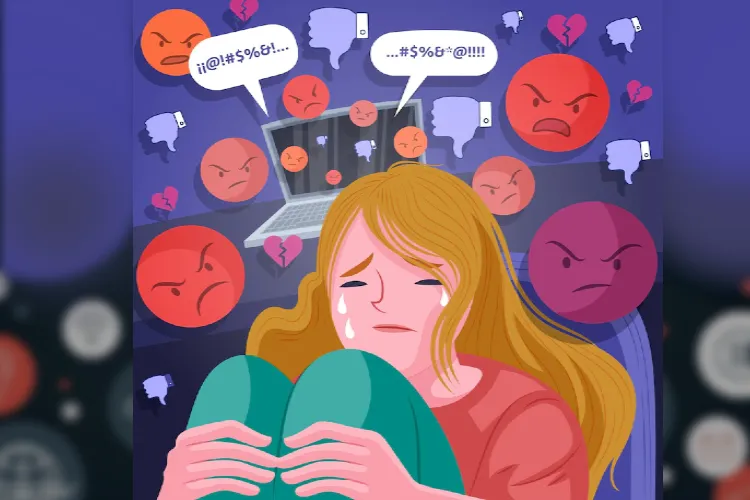While encountering a difficult situation for an extended period of time, you might find yourself constantly struggling to express, feel numb, get annoyed easily, feel fatigued, experience back/neck pain, have a bad headache or feel restless or nervous. Have you ever wondered why this happens? Some might attribute it to the turn of events experienced, but if you dig deep, you might realize it’s a result of certain thoughts, emotions or feelings that have not been dealt with and have been pushed down by the mind. This phenomenon is known as repression.
What is Repression Psychology?
According to the American Psychological Association, repression is the basic defense mechanism that excludes painful experiences and unacceptable impulses from consciousness. Repression operates on an unconscious level as a protection against anxiety produced by objectionable sexual wishes, feelings of hostility, and ego-threatening experiences and memories of all kinds. It also comes into play in many other forms of defense, as in denial, in which individuals avoid unpleasant realities by first trying to repress them and then negating them when repression fails.
The key points of the above-mentioned definition are that unlike suppression which occurs consciously, Repression is unconscious in nature and is adapted by the brain in order to cope with painful memories.
The concept of Repression was developed by Sigmund Freud. He looked at the human mind through the iceberg analogy and referred to the unconscious as the biggest part of the iceberg that lies below the water. Throughout his life, Freud worked on the unconscious and identified “Repression” as the first defense mechanism that pushes down the painful experiences.
Repression is also termed as Dissociative Amnesia as it involves the dissociation of individual from a traumatic experience in order to be able to survive it.
Why does Repression Psychology occur?
Repression occurs because the memories associated with a certain event might be too overwhelming to process, and the emotions perceived to be inappropriate to express. It may be a result of a psychological trauma which may have been so strong that it would have left a deep crack in the mind.
Very often, trauma faced in the early stages of life, especially childhood, may cause such an impact. This trauma might include the loss of a loved one, physical or mental abuse, deprivation of basic necessities and so on. As a child, the number of resources available at the disposal in order to cope are very limited. As a result of which, these memories may leave an imprint for a long term.
How does Repression Psychology occur?
Repressed memories and emotions might manifest itself in certain forms. These are stated below:
Phobia: Having a bad experience such as that of failing in exams at a very young age, the child may develop an unconscious aversion or phobia of exam. As an adult even though the child may not remember, they might avoid or fall sick right before the exam and have an immense fear beyond the general levels that most of us experience. In this case, the repression has taken a form of phobia that the child experiences.
Dreams: Repressed memories often find chances to float in the conscious and to come up. This happens a little more easily while a person is asleep through its manifestation in dreams, as the ego is less vigilant at that period of time.
Slip of Tongue: Also termed as Freudian slip, slip of tongue is a common phenomenon experienced by the majority of us wherein you want to say one thing but during the flow, you end up saying something else that you didn’t consciously intend to.
Apart from the these, repression might also manifest in physical and mental health disturbances as mentioned previously.
Your mental distress could be a result of repression. Talk to our therapists at Ganeshaspeaks.com to address your repressed thoughts.
Advantages of Repression
Generally, repression has short term advantages. One of the advantages makes it easier to cope with a difficult situation.
Some research studies have actually shown that repression, as a coping mechanism helps to deal with pain. It also helps to avoid confrontation of extremely difficult feelings.
Repression also helps to maintain a balance between impulsive desires and conscious decisions.
Disadvantages of Repression
When the repressed returns, it does so with immense force. Frequent repression of emotions can manifest into more serious problems such as neuroses, being irrational, experiencing stress, anxiety and depression.
The emotional pain might turn into somatic symptoms, taking a toll on the physical health of the person resulting in hindrance with daily life activities such as sleep, feeling fatigued all the time, higher risk of cardiac problems, headaches and so on.
“As long as you keep secrets and suppress information, you are fundamentally at war with yourself…The critical issue is allowing yourself to know what you know. That takes an enormous amount of courage.”
― Bessel A. van der Kolk, The Body Keeps the Score: Brain, Mind, and Body in the Healing of Trauma
Repression can affect one’s coping and defense mechanism. Talk to our mental wellness experts at Ganeshaspeaks.com to equip yourself with effect coping mechanisms.



